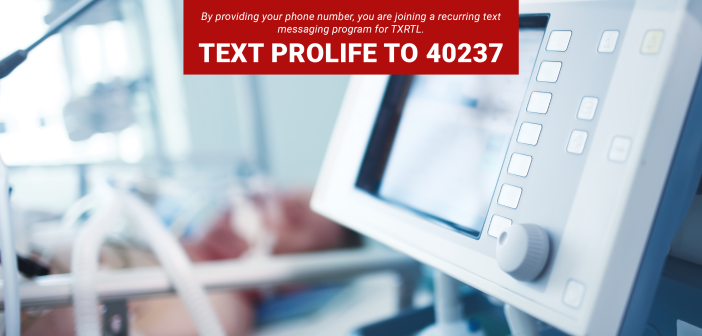Many families whose loved one experienced a severe brain injury can tell you of the frightening, life-shattering, and all-too-often quick pronouncement of brain death. Yet, often patients not only survive severe brain injuries, but reach significant milestones on their roads to recovery, defying even the grimmest of prognoses.
Meet 33-year-old Ryan.
In May 2020, Ryan suffered an anoxic brain injury. His parents immediately rushed him to a hospital in Pasadena, Texas. Three months later, the hospital’s Chief Medical Officer (CMO) informed Ryan’s mother that her son was “definitively brain dead.”
In the state of Texas, a person cannot be declared legally dead until there is “irreversible cessation of all spontaneous brain function.”
So naturally, Texas Right to Life’s patient advocates were shocked and alarmed to hear that the same CMO openly admitted to Ryan’s brain stem retaining some spontaneous brain function.
Our patient advocates immediately brought this grave error to the hospital’s attention. The medical field is often very quick to misdiagnose a brain injury as brain death. Yet, by their own admission, brain injury and brain death are two distinctly different matters, each having two entirely different ramifications. One may be treated; the other is considered legal death.
When confronted with their mistake, the hospital rescinded its brain death diagnosis. Within two months, Ryan had improved enough to be discharged from the hospital to return to his parents’ home with the required medical equipment, including the ventilator that was assisting his breathing.
Through every difficulty and setback, Ryan’s parents have faithfully fought for Ryan as his caretakers and healthcare surrogates.
In July 2022, a specialty hospital succeeded in weaning Ryan off the ventilator that had served as his life-sustaining treatment. Now, Ryan only needs supplemental oxygen to support his breathing.
If Ryan’s life had been left in the hands of the hospital two years ago, he would not be alive and improving today. If the physician who diagnosed him with brain death had prevailed, Rebekah and Randy would not have witnessed their son take his first breath on his own two years later.
Under Texas law, if a suffering patient does not have an ideal quality of life (an inherently subjective determination made by a physician), he or she has no right to live. Ryan survived a severe brain injury, a premature brain death diagnosis, and a hospital that was unwilling to uphold his right to continue living. Ryan fought, and when given the chance, he lived.
Yet, the truth is that Ryan should not have to be weaned off of his ventilator to be recognized as a valued human person worthy of life. Ryan’s inherent human value has never hinged on a particular benchmark of improvement. No physical or neurological recovery, no medical progress or regression, would make him any more or less a person created in the image of God.
Texas Right to Life is thankful that the Lord allows us to serve families like Randy, Rebekah and Ryan.
We are grateful that the Lord moves supporters just like you to sacrificially contribute to our patient advocacy fund so that we are able to quickly intervene for patients like Ryan.
Attacks against human Life come in all forms and from all directions, but you are making a difference to defend the most vulnerable.

